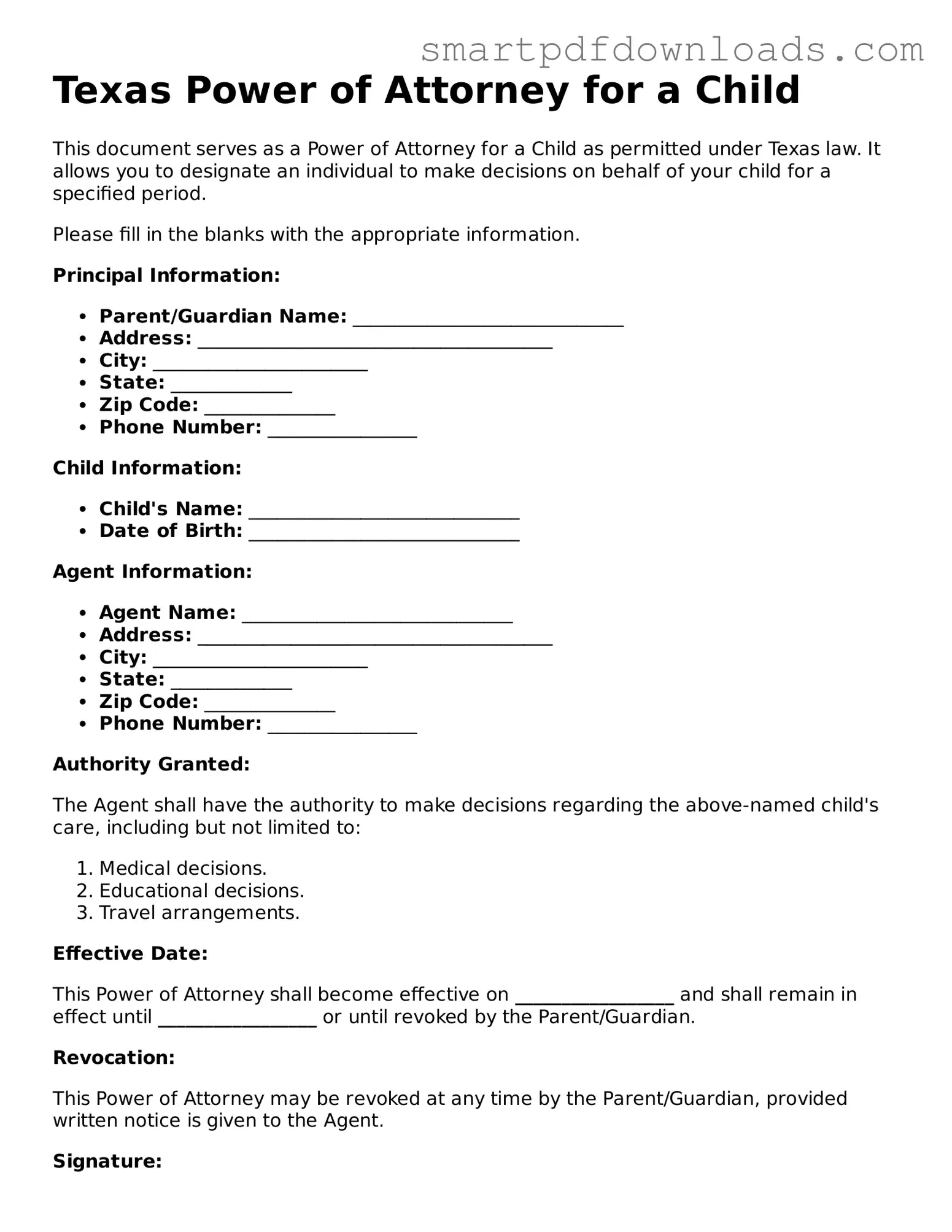Legal Power of Attorney for a Child Form for the State of Texas
The Texas Power of Attorney for a Child form is a legal document that allows a parent or guardian to grant another adult the authority to make decisions on behalf of their child. This form is particularly useful in situations where the parent may be temporarily unavailable, such as during travel or medical emergencies. By establishing this power of attorney, parents can ensure that their child's needs are met without unnecessary delays.
Edit Power of Attorney for a Child Online

Legal Power of Attorney for a Child Form for the State of Texas
Edit Power of Attorney for a Child Online

Edit Power of Attorney for a Child Online
or
⇓ PDF File
Finish the form and move on
Edit Power of Attorney for a Child online fast, without printing.